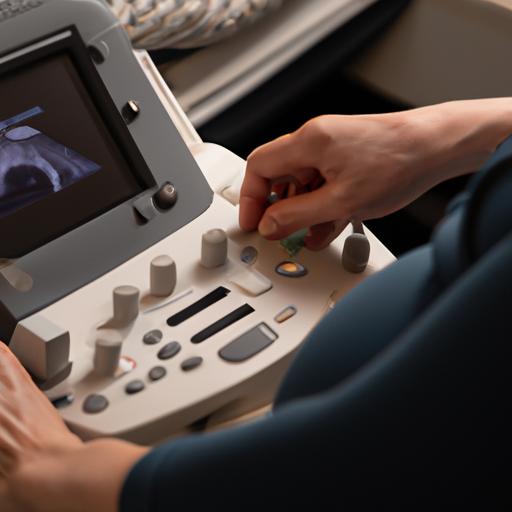Introduction
In the realm of medical imaging, the roles of sonographers and ultrasound techs are often intertwined, yet distinct in their duties and expertise. A sonographer, also known as a diagnostic medical sonographer, is a skilled professional trained in using ultrasound technology to produce images of internal organs and tissues. On the other hand, an ultrasound tech performs similar functions but may have a different focus or specialization within the field.
The significance of these medical imaging professionals cannot be understated in the healthcare industry. They play a pivotal role in aiding physicians in diagnosing and treating various medical conditions through the use of non-invasive imaging techniques. As we delve deeper into the specifics of each role, it becomes evident that both sonographers and ultrasound techs are indispensable assets in delivering quality patient care and ensuring accurate medical diagnoses.
Sonographer Job Description
Responsibilities of a Sonographer
As a sonographer, your primary responsibility lies in conducting ultrasound examinations on patients to produce high-quality images for diagnostic purposes. This involves operating ultrasound equipment, positioning patients for optimal imaging, and interpreting the results to provide accurate information to healthcare providers. Your keen attention to detail and technical proficiency are crucial in capturing clear images that aid in the diagnosis and treatment of various medical conditions.
Educational Requirements and Certifications
Becoming a sonographer requires specialized training and education. Typically, individuals pursue an associate or bachelor’s degree in diagnostic medical sonography or a related field. Additionally, obtaining certification from a recognized accrediting body, such as the American Registry for Diagnostic Medical Sonography (ARDMS), is often a prerequisite for employment. Continuous learning and staying updated on advancements in ultrasound technology are essential to maintain proficiency in this dynamic field.
Specializations in the Field of Sonography
Within the field of sonography, there are various specializations that sonographers can pursue to further enhance their skills and knowledge. These specializations may focus on specific areas such as obstetrics and gynecology, cardiovascular sonography, or musculoskeletal imaging. By honing expertise in a particular area, sonographers can provide specialized care to patients and contribute to the advancement of medical imaging practices.
Ultrasound Tech Job Description
Responsibilities and Duties of an Ultrasound Tech
Ultrasound techs, also known as diagnostic medical sonographers, are responsible for operating ultrasound equipment to capture images of patients’ internal organs and tissues. Their primary role involves conducting ultrasound scans, interpreting the results, and collaborating with radiologists and other healthcare professionals to provide accurate diagnostic information. Additionally, ultrasound techs must ensure that patients are comfortable and informed throughout the imaging process, maintaining a high standard of patient care.
Educational Requirements and Certifications Needed
Becoming an ultrasound tech requires a combination of formal education and practical training. Most employers seek candidates with an associate or bachelor’s degree in diagnostic medical sonography or a related field. Additionally, certification from an accredited program, such as the American Registry for Diagnostic Medical Sonography (ARDMS) or the American Registry of Radiologic Technologists (ARRT), is often required for employment. Continuing education and certification maintenance are essential to stay current with advancements in ultrasound technology and maintain professional standards.
Differences in Training and Scope of Practice Compared to Sonographers
While sonographers and ultrasound techs share similarities in their use of ultrasound technology, there are distinct differences in their training and scope of practice. Sonographers may have a broader focus on various imaging techniques and specialties, while ultrasound techs may specialize in specific areas such as obstetrics, abdominal imaging, or vascular sonography. Understanding these nuances in training and practice is crucial for aspiring medical imaging professionals to choose the path that aligns with their career goals and interests.
Salary and Job Outlook
Average Salary Range
When considering a career as a sonographer or ultrasound tech, one crucial aspect to ponder is the average salary range within these professions. Sonographers and ultrasound techs are typically well-compensated for their specialized skills and expertise. According to recent data, the average salary for sonographers in the United States ranges from $60,000 to $90,000 per year, depending on factors such as experience, location, and specialization. On the other hand, ultrasound techs may earn slightly lower, with an average salary range between $50,000 and $75,000 annually.
Job Growth and Demand
In today’s rapidly evolving healthcare landscape, the demand for skilled medical imaging professionals continues to soar. Both sonographers and ultrasound techs are witnessing a positive job growth trajectory, with employment opportunities projected to increase significantly in the coming years. As medical technology advances and the population ages, the need for diagnostic imaging services is expected to rise, driving the demand for qualified sonographers and ultrasound techs across various healthcare settings.
Factors Influencing Salary and Job Opportunities
Several factors can influence the salary and job opportunities available to sonographers and ultrasound techs. Factors such as geographic location, level of experience, additional certifications, and specialization within the field can impact earning potential and career advancement prospects. Staying abreast of industry trends, honing specialized skills, and pursuing continuing education can further enhance job prospects and potentially lead to higher salary offers in the competitive field of medical imaging.
Work Environment
Settings for Sonographers and Ultrasound Techs
In the dynamic world of medical imaging, sonographers and ultrasound techs find themselves in a variety of work environments. Sonographers often work in hospitals, clinics, imaging centers, and physician offices. These professionals may also be employed in specialized areas such as obstetrics and gynecology, cardiovascular imaging, or musculoskeletal imaging, depending on their specialization.
On the other hand, ultrasound techs can be found in similar settings, including hospitals, clinics, and imaging centers. However, they may also work in veterinary offices, research facilities, or mobile imaging units. The diverse nature of their work environments allows ultrasound techs to cater to a wide range of patient populations and medical needs.
Differences in Work Environment and Patient Populations
One notable difference between the work environments of sonographers and ultrasound techs lies in the patient populations they serve. Sonographers often work closely with patients requiring diagnostic imaging for various medical conditions, ranging from prenatal care to cardiovascular assessments. In contrast, ultrasound techs may encounter a broader spectrum of patients, including those seeking diagnostic imaging for non-human subjects in veterinary settings.
The unique challenges and rewards of working in the medical imaging field are shared by both sonographers and ultrasound techs. From navigating complex imaging equipment to providing compassionate care to patients, these professionals play a vital role in enhancing the quality of healthcare delivery and ensuring accurate diagnostic outcomes.
Conclusion
In conclusion, the comparison between sonographers and ultrasound techs sheds light on the unique qualities and roles each profession embodies within the realm of medical imaging. While both professions share a common goal of providing accurate and reliable diagnostic images, their specific responsibilities and areas of expertise vary.
Sonographers, with their specialized training and expertise in ultrasound technology, play a crucial role in capturing detailed images of internal structures to aid in the diagnosis of various medical conditions. On the other hand, ultrasound techs contribute to the healthcare industry by performing ultrasound procedures and assisting in patient care under the guidance of medical professionals.
As we navigate the dynamic landscape of healthcare, the demand for skilled sonographers and ultrasound techs continues to grow, highlighting the importance of these professionals in delivering high-quality patient care. Whether you aspire to pursue a career in medical imaging or seek to better understand the roles within the field, the distinction between sonographers and ultrasound techs underscores the valuable contributions they make to the healthcare industry.



